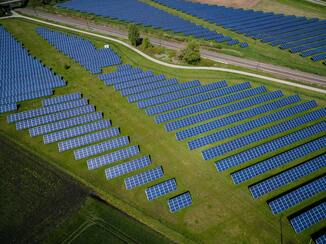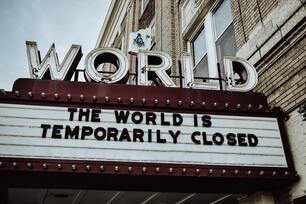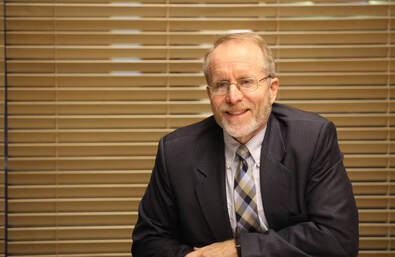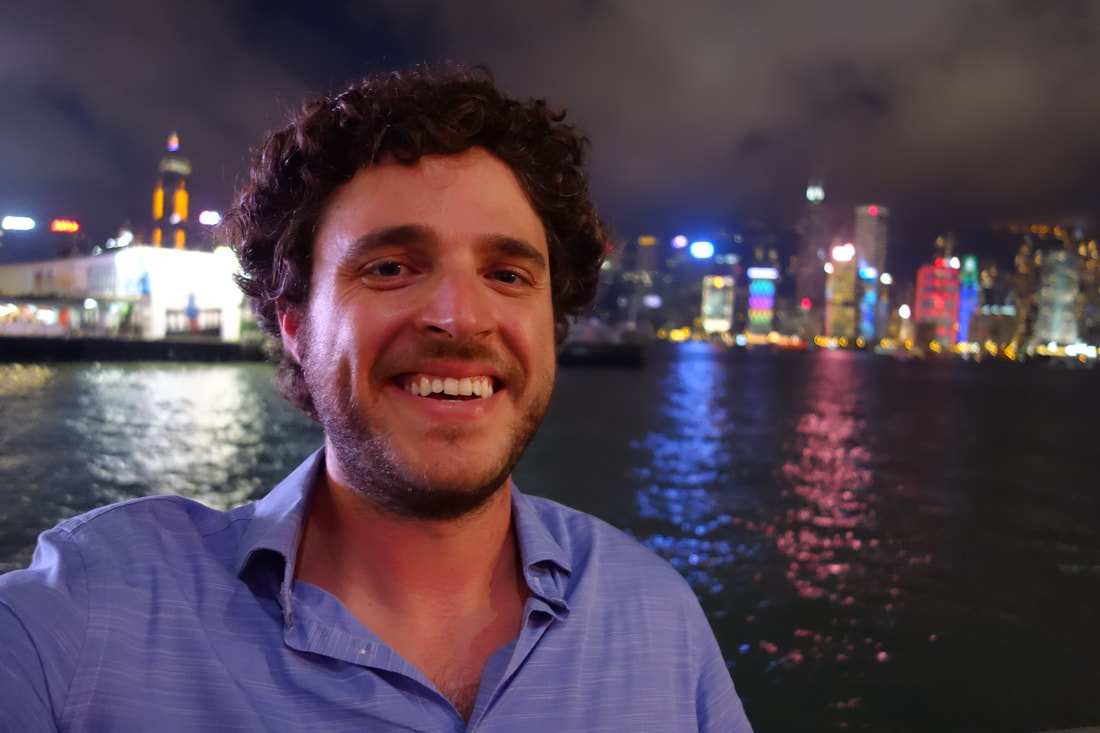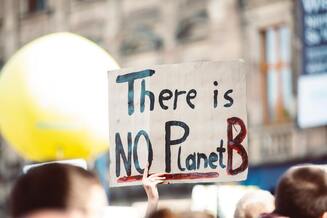One is a nuclear engineer from North Dakota. Another is an oil-and-gas entrepreneur in Houston. The third is a policy analyst in our nation’s capital. And the fourth is a leading energy scholar in Silicon Valley. North. South. East and West. They differ in their professional outlook on energy. But they all agree on one thing: The industry may be forever changed on the other side of the global pandemic.
|
Down In Houston
When the U.S. price of oil dropped below a dollar for the first time last week, Katie Mehnert chose to look on the bright side. You’d think the CEO and founder of Pink Petrol — a Houston-based startup, which is trying to close the global gender gap in oil and gas, power and utilities, and renewable energy — would be gnashing her teeth. She’s not. |
Like many, Mehnert is taking a philosophical approach to this tectonic shift in our personal and professional lives. The global pandemic has forced us into isolation and kicked us outside our comfort zones to rethink what it means to protect our families, our livelihoods, our planet. We are taking stock and counting blessings as disease, energy and climate converge into perhaps the greatest existential challenge of our time.
“The oil collapse is reflective of where we are today, and I’m optimistic about the future,” said Mehnert. “I think that the energy industry is going to be very different when we emerge from the coronavirus crisis. We’re going to emerge stronger and we’re going to emerge different.”
Her daddy was an oil-and-gas engineer and Mehnert grew up believing in the power of fossil fuels. She climbed the ranks at Shell and BP and spent 20 years in the industry. The energy industry, however, has been late to evolve and that’s hurting us today.
“We’ve done some amazing things and we have plenty to be proud of,” Mehnert said. “But somewhere along the way it feels like we’ve lost our way. When you think of the wildcatters and the old wild, wild west: they risked their lives to bring us something great and it completely changed our lives. But I feel like that entrepreneurial spirit has not been the same since.”
“We’ve done some amazing things and we have plenty to be proud of,” Mehnert said. “But somewhere along the way it feels like we’ve lost our way. When you think of the wildcatters and the old wild, wild west: they risked their lives to bring us something great and it completely changed our lives. But I feel like that entrepreneurial spirit has not been the same since.”
Mehnert hopes this period we are living through — one that likely will be studied for centuries in the history books like the Spanish Flu of 1918 — will accelerate the current energy transition. “Not to say that we’re going to get rid of oil and gas, because that’s a much-needed part of the energy policy. But I hope that it will put a renewed focus on the essentials that we need as humans: medicine, renewables and technology.”
|
The former energy executive became obsessed with the Middle Ages and the so-called Black Death as a history minor. The bubonic plague was the most fatal pandemic in history, killing more than 75 million people around the world from 1347 to 1352. The current pandemic has claimed nearly 200,000 lives as of this writing, according to the Johns Hopkins University map. “Those were some very difficult times in Europe, with the bubonic plague eliminating half of Europe’s population,” she said. “But what followed was the Renaissance. I remember being mesmerized by the number of great ideas that flourished: the art and politics and economics.”
|
Humans, she believes, are not motivated to change unless they experience significant pain. “Most people are not going to move left or right if they don’t have to,” she said. “But if people can see past the pain and embrace the fact that we’re at the dawn of something new on the horizon, I think we’re going to see lots of innovation. And it’s going to be amazing.”
Up in North Dakota
Perhaps they’re not as optimistic up in North Dakota, the Great Plains state that experienced an oil boom in the early aughts of this new century that made many, if not rich, then certainly better off. That North Dakotan liquid gold helped the U.S. become the world’s largest oil producer in 2018, ending our dependency Russia and Saudi Arabia.
Perhaps they’re not as optimistic up in North Dakota, the Great Plains state that experienced an oil boom in the early aughts of this new century that made many, if not rich, then certainly better off. That North Dakotan liquid gold helped the U.S. become the world’s largest oil producer in 2018, ending our dependency Russia and Saudi Arabia.
|
But the economic disaster and rapid rise in unemployment since the global pandemic that’s shuttered commerce around the world — compounded by the recent crash of the oil market — has been a disaster for the state that had 8 billion barrels of oil reserves. Just in the last month, nearly one-third of the state’s wells have been idled and crude production has fallen by more than 20%. Gov. Doug Burgum said he fears an “economic Armageddon” will hit the state as 5,000 wells have been shut down, accounting for about 300,000 barrels of lost oil a day.
|
North Dakota is a well-run state; the people are stoic and will ride it out, says Mark Hagerott, a former U.S. Navy nuclear engineer who is now chancellor of the North Dakota University System. “If you’re looking for an alarmist, the sky-is-falling approach, you won’t find it; that’s just not the culture here,” Hagerott said. “Sure, we’re seeing the U-Haul trailers packing up — but they’re a very tough workforce used to traveling from place to place doing what they do. There’s not a lot of gnashing of the teeth. There’s no throwing rocks.”
|
That’s not to say Hagerott, a Rhodes Scholar who taught energy history at the U.S. Naval Academy, doesn’t acknowledge this has been a big shock to oil workers and energy markets. Who could have imagined that we’d see crude futures at -$37? As a former military officer who participated in a ‘worst- case’ study of a pandemic earlier in his career, he said complex organizations must invest in programs that create resiliency, even if they might hurt quarterly results.
“In this case, we as a nation didn’t think strategically about the worst case: an oil glut that might produce more crude than our country could store.” Oil prices had fallen by 60% since the new year due to the pandemic and price war between Russia and Saudi Arabia. When prices plummeted even more last week, some traders had to pay buyers to take oil off their hands. “If we had built more storage tanks our domestic producers could have absorbed more, though not all, of the shockwaves produced by this pandemic,” Hagerott said. “But we don’t have that kind of storage capacity, and as consequence, wells are being idled. |
The North Dakotan spent much of his career as a nuclear engineer on naval warships, protecting the oil reserves in the Middle East, and teaching at Annapolis before returning to his multi-generational family of farmers and energy producers to head up the university system.
Today, he looks out his Bismarck office window and can see both the family farm and the Mandan Oil refinery his father helped to build. “I was looking at a photo from the 1970s of that tank-farm around the refinery — and it doesn’t look much bigger today than when my grandfather and uncle worked there. In hindsight, he said, we should have built more storage tanks. “As a former military guy and a son of a farmer, I have been conditioned to think not of quarterly profits but to value more resilience, security, reliability. As I look out, I see all the farmsteads with tank storage capacity for an entire harvest, or maybe two. Perhaps something like that needs to be the norm for our oil country, so they too can hold more of their energy harvest off the market to await better prices, and thus build in more resilience.”
Hagerott said he recognizes all the sadness, the deaths, the family losses and economic disruption caused by COVID-19. “But as a military person, this is a clarion call. This is the warning alarm to get ready for further pandemics and contagious diseases. We will never be as unprepared as we are now. We as a nation will never allow this to happen again.
But have we truly learned our lesson? Will science and technology beat out the politics that led to our slow response to this pandemic? “If our government can’t invest in the technology, then I expect the Googles and the Microsofts and the Apples will create the AI to monitor early indicators — to never allow us to be surprised by a pandemic again.” They will build the technology to act early and avoid such epic damage to our economy. The misguided MBA dominance of Wall Street, of living by quarterly results, is going to be balanced out by the engineers, risk managers, the cybersecurity analysts — and those values are going to be in demand going forward.
Today, he looks out his Bismarck office window and can see both the family farm and the Mandan Oil refinery his father helped to build. “I was looking at a photo from the 1970s of that tank-farm around the refinery — and it doesn’t look much bigger today than when my grandfather and uncle worked there. In hindsight, he said, we should have built more storage tanks. “As a former military guy and a son of a farmer, I have been conditioned to think not of quarterly profits but to value more resilience, security, reliability. As I look out, I see all the farmsteads with tank storage capacity for an entire harvest, or maybe two. Perhaps something like that needs to be the norm for our oil country, so they too can hold more of their energy harvest off the market to await better prices, and thus build in more resilience.”
Hagerott said he recognizes all the sadness, the deaths, the family losses and economic disruption caused by COVID-19. “But as a military person, this is a clarion call. This is the warning alarm to get ready for further pandemics and contagious diseases. We will never be as unprepared as we are now. We as a nation will never allow this to happen again.
But have we truly learned our lesson? Will science and technology beat out the politics that led to our slow response to this pandemic? “If our government can’t invest in the technology, then I expect the Googles and the Microsofts and the Apples will create the AI to monitor early indicators — to never allow us to be surprised by a pandemic again.” They will build the technology to act early and avoid such epic damage to our economy. The misguided MBA dominance of Wall Street, of living by quarterly results, is going to be balanced out by the engineers, risk managers, the cybersecurity analysts — and those values are going to be in demand going forward.
|
Electricity and Renewables Also Hard Hit
So with the oil crash and natural gas prices also plummeting due to storage and pandemic woes, are renewables and electricity having their day? Not really, says Stephen Bolotin, a strategy consultant for the Nexight Group, a management and technical consultancy just outside of Washington, D.C. The demand for electricity has dropped as companies and industries scale way back with workers at home. And existing renewables such as solar and wind are seeing an increased penetration of renewable resources as a percentage of total electricity. |
Bolotin works with some of the largest utility companies in the country. They’re just trying to maintain current operations through the summer, he said, with little time to plan for the future or think about the consequences of their systems on climate change. “It’s very much all-hands-on-deck trying to weather this storm.”
The North American Electric Reliability Corporation (NERC) has identified a number of nuclear power plants that need refueling — and technicians swapping out spent uranium rods in close quarters is hard to do during a pandemic. “There is more worry about system reliability over the summer. A lot of regular maintenance and upgrades, stuff they have to do to keep the systems operating, are being deferred right now — and that stuff may catch up with us over the summer.”
So, does that mean wind and solar will have their day in the sun? “Yes, renewable energy is more expensive up front, but once you have it, the sun just shines and the wind just blows,” Bolotin said. You do see a significant uptick in the relative utilization of renewable energy power production in Europe in the first three months of this year. Power generation by coal-fired plants fell by more than 25% across Europe in the first three months of 2020 — while renewable energy reached a 43% share, according to data analysts.
|
Germany saw its share of renewable energy reach a record 60% between March 10 and April 10, while coal generation fell 44% over the same period last year. But the picture is not as rosy in the U.S., which lags far behind Europe in renewables. The pandemic has led to huge layoffs among the solar and battery storage companies and their supply chains have cranked to a halt. “The majority of the renewable energy supply chain comes from China — solar, wind turbines and batteries — so there are huge disruptions to the supply chain,” says Bolotin. Meanwhile, biofuels are “getting hammered harder than the power sector” because with the oil prices going into negative pricing, there’s no way for the biofuel companies to compete. A gallon of ethanol, for example, now costs more than a gallon of gasoline. And a number of big airlines and oil companies were investing in biofuels, but that is now tabled.
|
When you’re trying to do power and politics, you’re not really pursuing the truth.
|
So, when asking the policy analyst to zoom out and look at the longer-term impact of the coronavirus on energy, is he an optimist or pessimist? Will the technologists, engineers and scientists have a bigger seat at the table, as Hagerott suggests? “I’m a realist,” Bolotin said. “I think the essential problem is that science gets politicized; I think scientists and experts, they have a great role in the public policy side of things, but I think the politics get tricky. When you start talking truth and knowledge, that’s one thing. But when you’re trying to do power and politics, you’re not really pursuing the truth. A lot of great scientists are doing great work and they’re smart enough not to stick their head up to get it shot off.” He said one potential boon for renewables is the sudden increase in innovation throughout the economy under the pandemic.
When You Ignore the Science
The scientists warned us of the likelihood of another global pandemic years ago; they have been warning us for decades that global warming will destroy coastal cities, devastate food supplies and lead to more than half-a-million climate-related deaths by 2050.
The scientists warned us of the likelihood of another global pandemic years ago; they have been warning us for decades that global warming will destroy coastal cities, devastate food supplies and lead to more than half-a-million climate-related deaths by 2050.
|
“We’ve been warned of pandemics for a long time, but people just didn’t take it seriously,” says Sally Benson, a materials science engineer, professor and co-director of the Precourt Institute for Energy at Stanford University. “It’s an analogy for climate change in that we’ve known for hundreds of years how dangerous it would be — and we’ve had a lot of high-quality data in the last 50 years — and yet as a global society we have not been paying a lot of attention.”
|
The coronavirus pandemic has become the proverbial canary in the coal mine. “Everybody is now sitting at home and having discussions about the warnings of the medical professionals,” said Benson. “Ignoring the medical professionals and the ignoring the scientists on climate change — we are now seeing the consequences.” The heating of the planet and those greenhouse gasses trapping pollution is not only making humans more vulnerable to respiratory illnesses, it’s leading to disruptions of animal habitats. Since the novel coronavirus and most infectious disease are zoonotic — transferred from animals to humans — we can expect these pandemics to become even more deadly.
Benson and her husband were on vacation in Patagonia in early March when their small cruise ship became stranded as Chile and Argentina refused to take the 99 people on board, though none of the passengers was sick. The Falkland Islands took them in before they flew back to the Bay Area, which has been under the statewide mandate to stay at home since March 16.
Benson and her husband were on vacation in Patagonia in early March when their small cruise ship became stranded as Chile and Argentina refused to take the 99 people on board, though none of the passengers was sick. The Falkland Islands took them in before they flew back to the Bay Area, which has been under the statewide mandate to stay at home since March 16.
|
Patagonia, at the southern tip of South America, has seen the average temperature rise 1°C over the last 50 years and its spectacular ice fields are melting at some of the highest rates on the planet, contributing to the rise in sea levels. “Maybe people will see now that we are all connected and the idea that we could shield ourselves from a global virus will finally send shockwaves around the world,” Benson said. “Clearly climate change is one of those things, too. You can’t just shut yourself off and only think about your own behavior.” As a professor, she believes the pandemic will reinforce her students’ belief that climate change is an existential crisis and become even more motivated to work on these global problems.
|
What about the long-term implications for decarbonization? One of the consequences of the global lockdown has been the dramatic lack of co2-spewing jetliners, tanker ships, automobiles and public transportation vehicles. In one of the greatest ironies of this new decade: pollution made the coronavirus worse, but the sheltering-in-place orders has cleared up the air. “I guess if there is a sort of silver lining from the coronavirus from an energy context, people are realizing that they can be very productive from home,” Benson said. “This staying-at-home has been very stable for the environment. Reducing energy use and transportation — that’s a silver lining not only for the environment, but also for the quality of life.”



